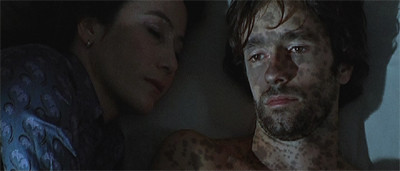Perhaps in loose keeping with the theme of memes, my article for The Reeler can be read on not one but two sites. Of course for the full version of the piece below, you’ll have to click through to his site, a worth while use of your reading time to be sure.
I have to admit I find the now-popular intellectual act of turning one’s nose up at the overly highbrow while championing mass culture a bottomless pit of good conversation. Three years ago, for example, it would have been hard to sell anyone on the idea that you could find more substance in Internet chain letters and memes than such life-changing intelligence as the kinkiest place you've had sex. Web geeks, however, would have told you well before then that the phenomenon held more significance. And while the idea of a meme as information exchange may not sound so radical today with the ubiquity of Internet use joining hacker culture to the mainstream, for this same reason Meme: Romanticism, an exhibition currently on view at the Elizabeth Foundation for the Arts, makes an especially timely appearance; even if you're not familiar with the practice’s terminology and techniques you've probably experienced enough viral media by 2007 to have a basic understanding of the concept.
Now I know this seems like a bold statement to be issuing in mid-March, but I'll be surprised if I see a better exhibition this year. Though not all the work in this show is Web-based — some works are purely video, others are photographic stills – the pieces share technological aesthetics that together represent a new school of contemporary filmmakers and artists whose art parallels the age of Romanticism. Similarly defined by a reaction to the trumpeting of reason — often by simply working against the objective and disinterested biases of technology — Meme: Romanticism not only stresses emotion as the source of aesthetic experience, but defines this experience as paradoxically continuous, contagious and fleeting.
To read more click here.



Comments on this entry are closed.